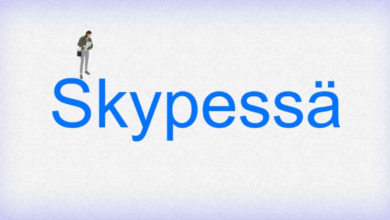The Impact of Social Media on Modern Hiring Practices

Exploring the Role of Social Media in Recruitment
In today’s job market, the power of social media extends far beyond connecting with friends and sharing life updates. It’s a pivotal tool for recruiters and HR departments globally, significantly impacting hiring practices. A simple online search can reveal a wealth of information about potential candidates, so many businesses are incorporating social media footprint analysis into their recruitment strategies. This shift towards digital channels provides a more holistic view of a candidate’s character, lifestyle, and even professional networks.
Social Media Screening: What Employers Look For
When it comes to social media and hiring, employers are not just looking for red flags but also searching for positive indicators of a good fit for the company culture. They may examine an applicant’s communication skills, professional accomplishments, and community involvement. This holistic review extends into how one interacts online, contributing a more complete picture than what is often found on a resume alone. Incorporating a social media background check into the hiring process is a testament to the weight of an online reputation in today’s digital world.
The Significance of a Professional Digital Presence
In the information age, a candidate’s online presence has become crucial to their professional profile. Job seekers are advised to actively manage their digital footprints, which include social media posts, online comments, and even shared articles. A thoughtful and professionally tailored online persona can support a job application, showcasing expertise, thought leadership, and industry engagement. Conversely, inappropriate or controversial content can undermine professional achievements and deter potential employers. It is the nuanced balance between personal freedom and professional prudence that job seekers must navigate in the digital age.
Privacy Concerns and Ethical Considerations
Navigating the terrain of social media in recruitment brings up significant privacy concerns. Ethical dilemmas arise when determining what is considered public domain versus private information. Employers must tread carefully to respect candidates’ personal lives while ensuring their online behaviors align with company values. There’s a delicate balance between the need for insight and respecting individuals’ digital privacy, which requires a clearly defined policy on what aspects of an individual’s social media presence are pertinent to job performance and appropriate for review.
How Social Media Impacts Recruitment Strategies
Research by Pew Internet indicates an upward trend in the use of social media for hiring decisions, with a particular focus on professional networking sites such as LinkedIn. Employers are leveraging these platforms for talent scouting and recruitment more than ever, making it an essential avenue for job seekers to display their professional credentials. Furthermore, data highlight the growing emphasis on candidates’ soft skills and cultural compatibility, often gleaned from an individual’s social media presence.
Legal Ramifications of Social Media Screening
The expansion of social media use within hiring processes has given rise to legal considerations that companies must heed. Several jurisdictions have specific regulations protecting candidates against discrimination based on the information unveiled through social media vetting. For example, in the United States, the Fair Credit Reporting Act (FCRA) requires employers to obtain consent before conducting any background screening, including social media checks. Non-compliance with these regulations can result in severe penalties for organizations, making it crucial that businesses know and adhere to these legal mandates.
Best Practices for Employers and Recruiters
Given the complex nature of social media usage in the hiring sphere, best practices are essential to facilitate fair and compliant procedures. Employers are encouraged to standardize the social media screening process, ensuring it’s consistent and non-discriminatory for all candidates. They should also remain informed about the changing legal landscape to avoid potential litigation. Furthermore, organizations should communicate their social media screening policies in job postings and application materials so that candidates understand the criteria for evaluation.
Tips for Job Seekers: Cultivating a Positive Online Identity
Job seekers can proactively ensure their social media profiles are assets rather than liabilities. Regular cleanup of questionable content and thoughtful engagement in professional topics can significantly enhance online personas. Individuals should consider their privacy settings and the potential audience for their posts, as even seemingly private comments can become public through shares or screenshots. Additionally, building a positive online presence can involve:
- Contributing insightful comments on industry articles.
- Participating in relevant discussions.
- Showcasing thought leadership to attract the attention of recruiters.
Technology in Recruitment: The Future of Social Media Screening
The future of hiring appears increasingly intertwined with advances in technology. Predictive analytics and artificial intelligence may soon play a significant role in social media screening, enabling a deeper and more unbiased analysis of a candidate’s online presence. These technologies could assist in identifying patterns of behavior and assessing cultural fit more accurately than manual reviews. With these advancements, however, comes the need for even more stringent considerations of privacy and ethics, raising questions about the extent of technology’s role in our professional lives.
Balancing Innovation with Integrity
Integrating social media insights in recruitment is an example of innovation at the crossroads of tradition and technology. While it offers opportunities for more informed hiring decisions, it also questions how we define professional integrity in the Internet age. The ongoing challenge for employers and job seekers is ethically navigating this digital landscape. Organizations need to maintain a level of diligence to protect both their interests and the privacy rights of candidates; job seekers must take the reins of their online identities seriously. The equilibrium between the two will define the future efficacy and fairness of digital recruitment practices.




![[pii_email_e97b06d078c50a765db6]](https://dcawp.com/wp-content/uploads/2021/10/Email-1-e1633594488576-390x220.jpg)